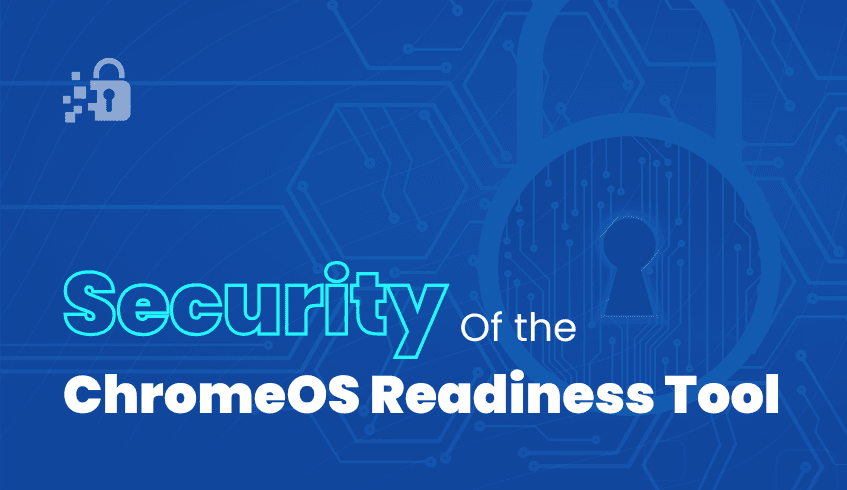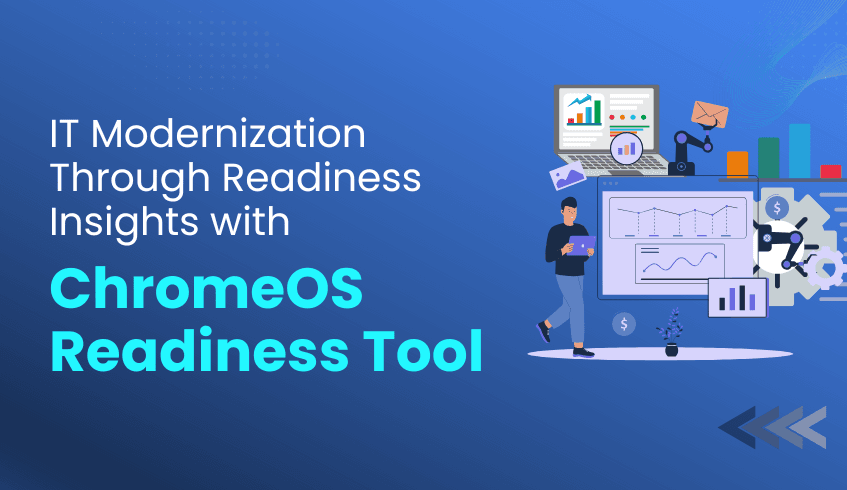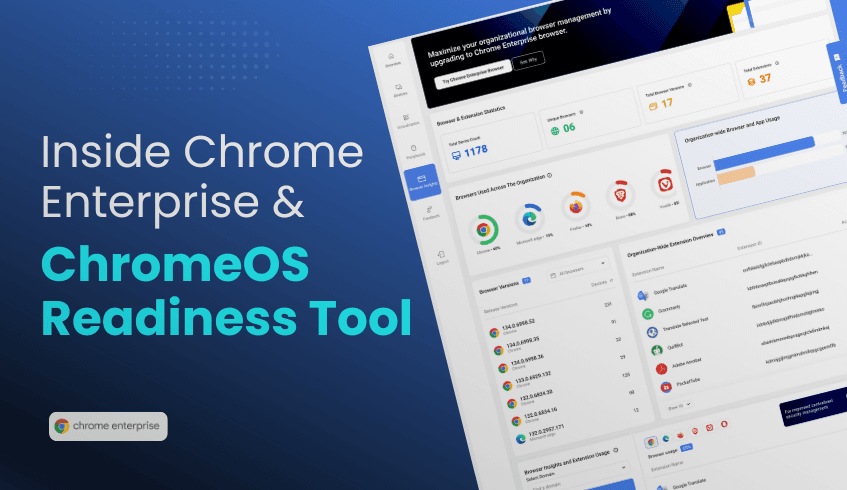
How Secure Is the ChromeOS Readiness Tool?
In an era where cyber‑threats are ever‑present, ensuring secure planning for a ChromeOS transition is critical. The ChromeOS Readiness Tool is designed with robust security measures to ensure that your organization's sensitive information remains protected throughout the migration assessment process.
Multi-Layered Data Encryption
ChromeOS Readiness Tool employs advanced encryption techniques to safeguard your data:
AES Encryption: All log files generated by ChromeOS Readiness Tool are encrypted using the Advanced Encryption Standard (AES), ensuring that data at rest is secure.
RSA Encryption: The AES encryption keys themselves are further protected by encrypting them with the server's RSA public key, adding an additional layer of security.
These encryption methods ensure that even if data is intercepted, it remains unintelligible to unauthorized parties.
Controlled Access with Private Keys
Access to the assessment details on the web dashboard is restricted:
Private Key Requirement: Only the user who deployed the tool and possesses the corresponding private key can decrypt and view the assessment data.
This ensures that sensitive information is accessible only to authorized personnel within your organization.
Secure Storage Options
ChromeOS Readiness Tool offers flexible storage solutions to align with your organization's security policies:
Network Shared Folder: For organizations preferring on-premises data storage, the ChromeOS Readiness Tool allows encrypted data to be stored in a designated network shared folder. Access to this folder is restricted to authorized IT personnel, ensuring secure data handling within your internal infrastructure.
Google Cloud Platform (GCP) Storage: For organizations utilizing cloud services, ChromeOS Readiness Tool supports storage on GCP. This option leverages Google's robust security measures, including role-based access controls, to protect your data in the cloud.
Certifications, Compliance, and Best Practices
In addition to encryption and access controls, the ChromeOS Readiness Tool follows strict compliance standards and best practices to meet the needs of enterprise IT teams:
SOC 2 Type 2 Certification
The ChromeOS Readiness Tool, along with its development and operational processes at Codimite, has been independently audited and awarded SOC 2 Type 2 certification. This validates that the tool meets rigorous standards for security, availability, and confidentiality over time — not just at a single point. The certification reflects a proven track record of secure practices, giving organizations assurance that the tool operates under a compliant and secure framework.
Digitally Signed Scripts with Sectigo
All deployment scripts for the ChromeOS Readiness Tool are digitally signed by Sectigo, a globally trusted certificate authority. This signature ensures the integrity and authenticity of every script — so organizations can verify that the deployment packages have not been altered or tampered with. It’s a key safeguard that adds confidence to enterprise-scale rollouts.
GDPR Compliance
The ChromeOS Readiness Tool is designed in alignment with the General Data Protection Regulation (GDPR). Its data collection and processing mechanisms follow best practices for transparency, user privacy, and lawful handling of information — particularly for EU-based organizations. While not certified, the tool’s architecture reflects a thorough internal analysis to ensure GDPR-aligned operation.
Enterprise-Grade Deployment Flexibility
ChromeOS Readiness Tool is designed to accommodate various organizational structures:
PowerShell Script Deployment Ideal for both small teams and large enterprises, PowerShell scripts enable quick, customizable deployment across user devices. These scripts are digitally signed by Sectigo, ensuring authenticity and guarding against tampering during distribution or execution. IT administrators can easily roll out the tool while maintaining strict governance and security policies.
Active Directory (AD) Integration For enterprises with centralized user and device management, ChromeOS Readiness Tool supports seamless integration with Active Directory. This allows IT teams to deploy the tool in a controlled, authenticated environment, ensuring only trusted endpoints are included in the assessment process. AD integration also makes it easier to apply role-based access controls, further strengthening security.
These deployment options ensure that ChromeOS Readiness Tool can be tailored to meet the specific security and operational needs of your organization.
Centralized Reporting with Security in Mind
ChromeOS Readiness Tool’s ability to generate centralized reports from multiple devices provides comprehensive insights while maintaining data security:
Encrypted Data Collection: All data collected from user devices is encrypted, ensuring that sensitive information remains protected during aggregation and analysis.
Secure Dashboard Access: The web dashboard, used for displaying readiness reports, requires proper authentication and possession of the private key, ensuring that only authorized users can access the compiled data.
By integrating these comprehensive security measures, the ChromeOS Readiness Tool ensures that your organization's data remains protected throughout the migration assessment process. Whether you choose on-premises storage or cloud-based solutions, ChromeOS Readiness Tool provides the flexibility and security necessary for a confident transition to ChromeOS.
For more information and to get started with the ChromeOS Readiness Tool, visit the official website.




